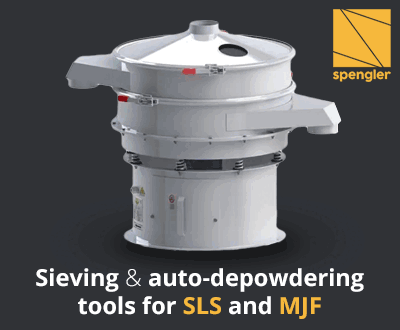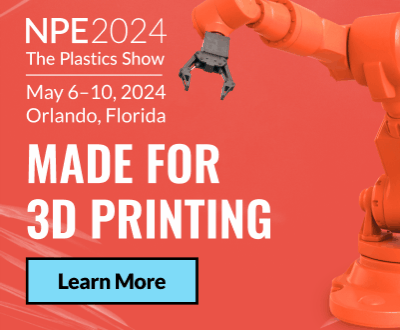Kind Designs Talks Coastal Sustainability With 3D Printed Living Seawalls
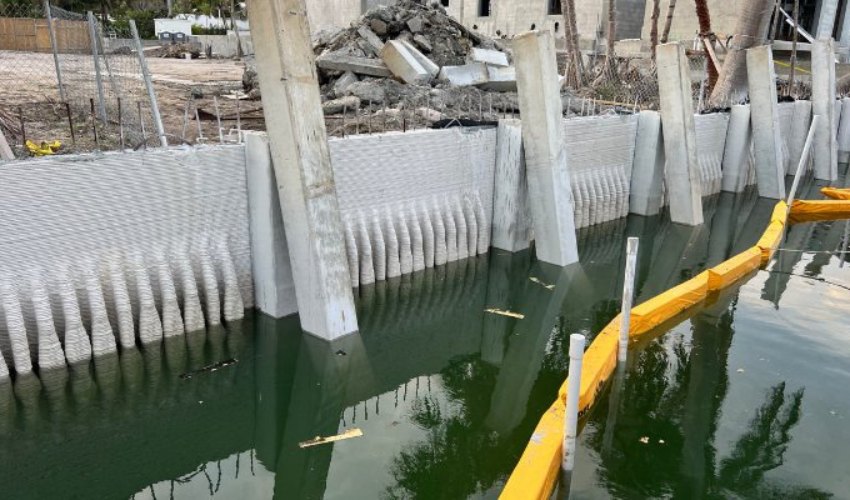
As the pace of climate change accelerates and sea levels rise, coastal communities across the globe are facing an unparalleled danger. Adding to this dilemma is the distressing decline of coral reefs. While previous efforts have addressed these issues separately, Miami-based tech company Kind Designs has pioneered a groundbreaking approach by utilizing 3D printing to address both challenges at once. By developing 3D printed seawalls, the company has emerged as a frontrunner in coastal sustainability, offering a solution that has the potential to fundamentally transform how we protect our coastlines. To learn more about the company’s efforts and plans in this field, we spoke with the CEO and founder of Kind Designs, Anya Freeman.
3DN: Could you introduce yourself and Kind Designs?
Hello, my name is Anya Freeman, and I am the founder of Kind Designs. We’re a Miami-based team of ocean enthusiasts aiming to disrupt the coastal construction industry and fortify coastal cities by transforming toxic seawalls into artificial reefs through 3D printing technology.
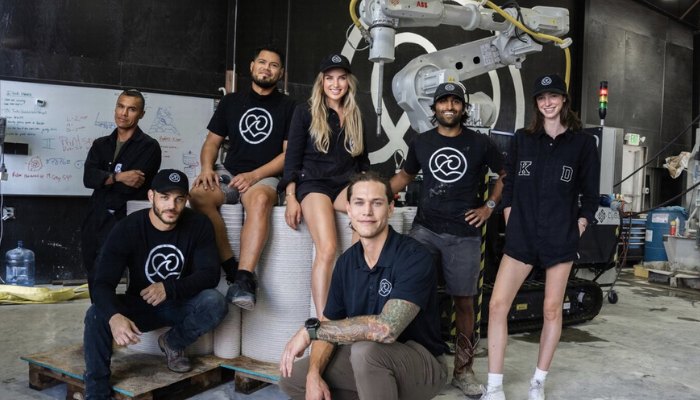
Anya Freeman (center) and members of the Kind Designs team.
3DN: What inspired the concept of Living Seawalls, and how do they differ from traditional concrete seawalls in terms of environmental impact and effectiveness?
I moved to Miami in 2009 to go to law school. After graduating, I worked as an attorney and lived in a house in Miami Beach with my friends. I started noticing the radical increase in flooding and storm surges year after year in my community due to rising sea levels. It was common for my friends and I to come home and walk through knee-deep water just to get to the front door of our house. It was frustrating that the narrative surrounding this problem was only doom and gloom, and that there was absolutely no conversation around applying technology to find a solution.
Frustrated with the lack of innovation in this space, I dove into research for solutions. I learned that the first line of defense against flooding was building seawalls. However, traditional seawalls are very expensive and destroy marine life. I then set out to find a solution for Miami and all coastal cities that was both affordable for communities and also nurturing for sea life. And so, Kind Designs was born.
Our company is 3D printing Living Seawalls. These Living Seawalls are structurally identical to traditional seawalls: same PSI, same reinforcement, and same installation method. However, through material composition and biomimicry design principles, Living Seawalls also function as marine habitats. They have large caves (mimicking mangrove roots) that protect sea life from predators, and their rugosity and texture are ideal for smaller organisms to attach and thrive even during extreme weather events.
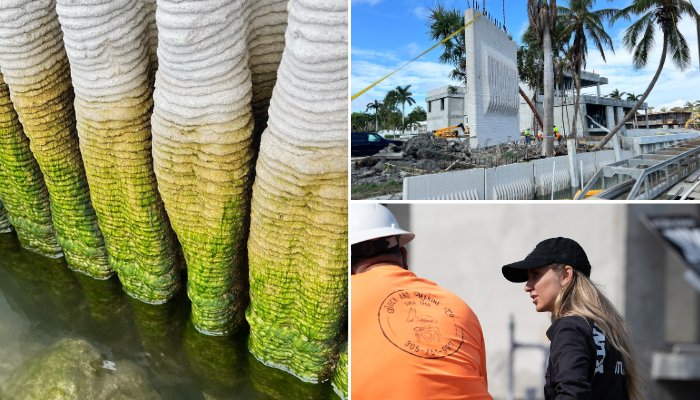
Kind Designs is the first to create this kind of 3D printed ‘Living Seawall’
3DN: Can you explain the process behind creating Living Seawalls, including the use of 3D printing technology?
We have an exclusivity agreement with the company Cybe from the Netherlands for the seawall applications. Cybe robots are the fastest robotic arms on the market, printing at 500mm/second. They also have a very small resolution size—our living seawall layers are only ½ inches. This unlocks design freedom, which we have capitalized on to create the mangrove root designs. We print a 10 x 10-foot seawall panel in under an hour. Without the speed and resolution, excellent economics and marine habitat function would simply not be possible.
3DN: In what ways do Living Seawalls contribute to marine ecosystems and biodiversity?
Within the walls, a macro design mimics local marine habitats—mangroves in Florida, for example. The walls also have a micro design and texture ideal for coral and small organism attachment. They are constructed with a proprietary mix material that does not contain metals or chloride and, therefore, does not leach chemicals into the ocean. Our materials have been used in successful artificial reef projects and even reservoirs for drinking water. Although we just started installing them, we have historical data on the material’s use in other marine and environmental applications going back many years.
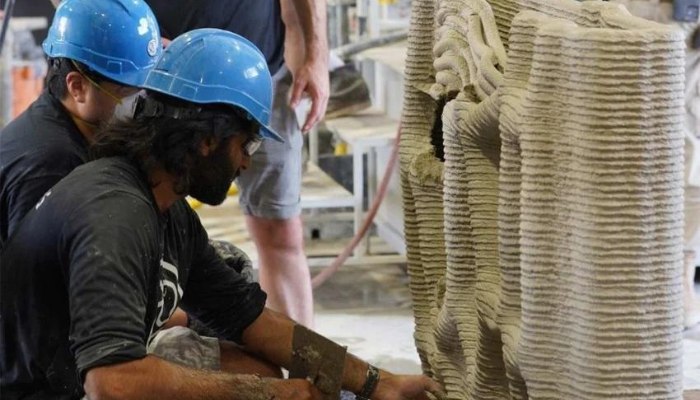
Examining the 3D printed Living Seawalls
Adding to that, using the seawalls, we collect 15 different water quality parameters, the same parameters that coastal counties already collect manually. We have ideal real estate for water quality sensors, and all the data is live. Furthermore, the seawalls can communicate with each other, so we are creating an entire network of information that was not previously possible.
3DN: How does Kind Designs approach the affordability and accessibility of Living Seawalls for coastal communities?
There is no “green premium.” Seawalls are already very expensive and, in fact, cost-prohibitive for many homeowners. Many homeowners bought their homes before the massive spike in prices in coastal cities. An average seawall in Miami, for example, costs $300,000. Most homeowners do not have this cash available. Therefore, we do not want to create a product that’s more expensive for homeowners, even if it is better for the environment.
For starters, we are already able to price-match existing toxic seawalls. All the environmental, not to mention the aesthetic, benefits have no additional cost. Currently, we are working with our local legislature to create a special permitting process for Living Seawalls, which will provide huge cost savings on the overall cost of the seawall project.
3DN: Any last words for our readers?
You can find out more about our company on our website here.
What do you think of this initiative by Kind Designs? Let us know in a comment below or on our LinkedIn, Facebook, and Twitter pages! Don’t forget to sign up for our free weekly newsletter here for the latest 3D printing news straight to your inbox! You can also find all our videos on our YouTube channel.
*All Photo Credits: Kind Designs






